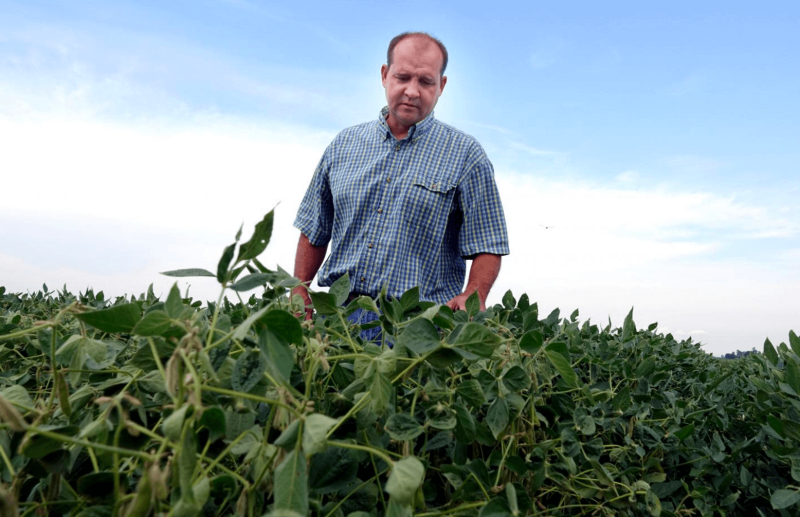An advanced weed-killing chemical has twice come back to haunt Arkansas farmer John Weiss.
The herbicide, known as dicamba, has long been employed in the United States to kill weeds before fields were planted, but its use spiked after regulators last year approved a new formulation that allowed farmers to apply it to growing plants.
That should have been good news for Weiss and hundreds of other farmers, who planned to use it to control hard-to-kill weeds in fields planted with crops bioengineered to survive the chemical.
Instead, farmers reported the agricultural chemical was drifting into neighboring fields and damaging crops unable to resist it. [July 2017], in response to the reports, Arkansas and Missouri temporarily banned its use.
The fallout from dicamba hit Weiss on two fronts: The drifting chemicals, he said, stunted his unprotected soybean crops and marked the plants with damaged, withered leaves.
Then came the ban, which meant he could no longer use the chemical on the dicamba-resistant soybeans and cotton it was meant to protect.
“It’s just a double whammy, this whole thing,” said Weiss.
The GLP aggregated and excerpted this blog/article to reflect the diversity of news, opinion, and analysis. Read full, original post: Drifting crop chemical deals ‘double whammy’ to U.S. farmers































